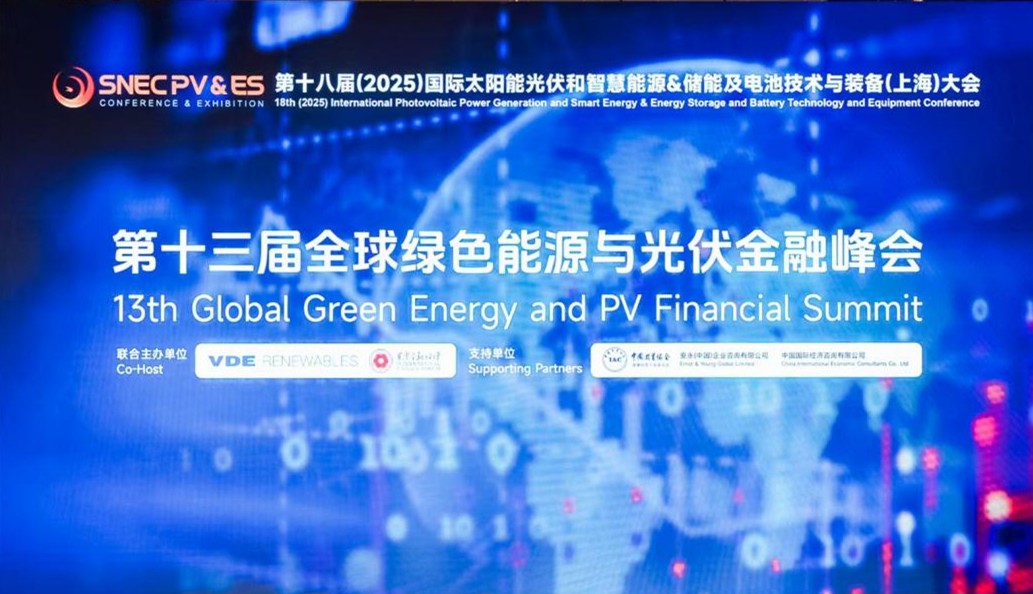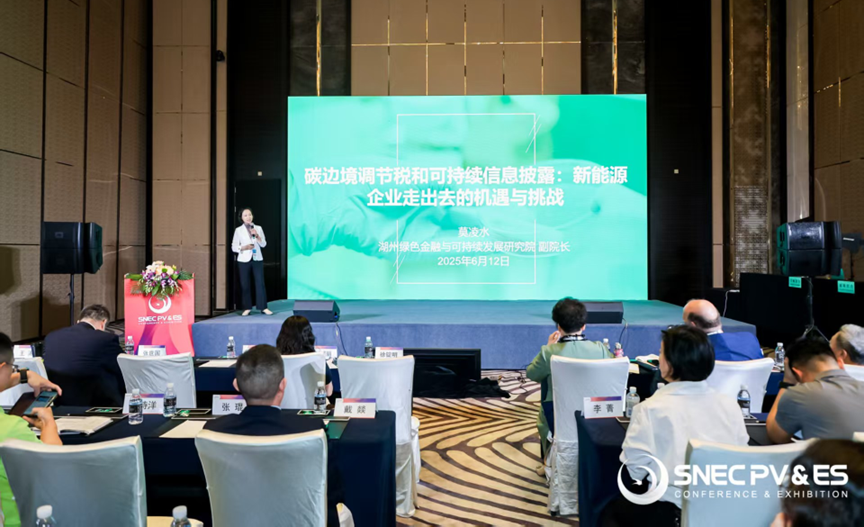On June 12, 2025, the 13th Global Green Energy and Photovoltaic Finance Summit, jointly organized by VED RENEWABLES and International Finance Forum, was held in Shanghai. As a brand meeting of SNEC for thirteen consecutive years, the summit brought together industry experts, scholars, industry leaders, and representatives of leading enterprises in green energy, green finance, and digital intelligence technology to explore the road to high-quality development of new energy industry empowered by green finance. Representatives from Energy Research Institute of China Macroeconomic Research Institute, Renewable Energy Development Center of Energy Research Institute of National Development and Reform Commission, Chinese Academy of Social Sciences, Energy Investment Specialized Committee of China Investment Association, Munich Reinsurance, CITIC Bank, Huaneng Tiancheng Finance and Leasing, Ant Digital Technology, Ernst & Young and other units attended the meeting.

Mr. Mo Lingshui, Vice President of Huzhou Green Finance Institute, was invited to give a keynote speech on “Carbon Boundary Tax and Sustainable Disclosure: Opportunities and Challenges”.

She pointed out that in the context of global sustainable development and the trend of carbon neutrality, each country's requirements for carbon emission control and sustainable information disclosure have become increasingly stringent, and “green compliance” has become an issue that Chinese enterprises cannot avoid, and the greening/sustainability of products is becoming a green yardstick for international trade. China's new energy and low carbon industries represented by photovoltaic, new energy vehicles and batteries have formed a complete industrial chain with leading technology and strong international competitiveness. The implementation of the carbon border tax and the introduction of new green regulations such as sustainable information disclosure, represented by the European Union, is both an opportunity and a challenge for energy companies to go global. On the one hand, it will bring market demand for green energy and its industry, promote green upgrading of the industry, accelerate the pace of globalization of the industry, force enterprises to improve their international management capabilities, and export low-carbon solutions. On the other hand, enterprises are also facing challenges such as the difficulty and increased cost of compliance data management, as well as green trade barriers and intensified competition in green and low-carbon technologies. To meet the challenges of globalized green compliance and green trade barriers, she suggests that enterprises need to shift from passive to active compliance: first, strengthening carbon management and sustainable information disclosure; second, increasing technology and business model innovation to enhance green competitiveness; third, optimizing the global layout of production and supply chain; fourth, proactively evaluating and managing the environmental risks of outbound investment; and fifth, actively participating in the development of international green standards and enhancing Fifth, actively participate in the formulation of international green standards and strengthen international cooperation, so as to play a leading role in the global green trade rules.


